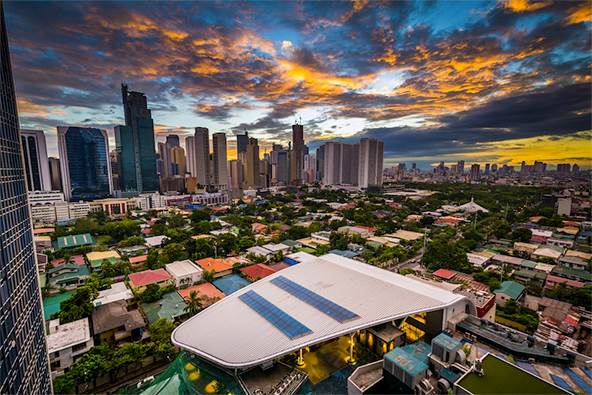
Reading Time: minutes
Is it difficult to invest in Philippine properties? While investing in Philippine real estate can be very daunting, especially for new entrants, the process can become easier with proper research on the typical fees and terms in sales and leasing transactions.
To facilitate easier understanding of the process, we have summed up the basic tenets and information investors and tenants need to know when buying and renting properties. Here is your handy Philippine real estate investment guide:
Property Ownership for Foreigners and Locals
Types:
Freehold land: Exclusive for Filipino citizens, partnerships, and other juridical persons that are at least 60% Filipino-owned
Leasehold land: All public land may be owned by Filipino citizens on a leasehold tenure; however, private land may be leased by international corporations with certain restrictions
Can foreigners own properties in the Philippines?
Overseas nationals cannot own private lands, but they are allowed to lease it for 50 years. It is renewable once for a maximum of 25 years.
Foreigners may own condos, as long as foreign ownership of the condominium development is only within 40%. They may also secure a Special Resident Retirement Visa to gain additional benefits aside from being able to buy a condo and lease a private land or house and lot.
Lease Terms and Transaction Costs (Office)
Typical Lease Length: 3 years for traditional office space; 6 months to 1 year for serviced office
Rental levels quote: Per sq m per month for traditional office space; Per seat for serviced offices
Deposits: Usually equivalent to 3 months' rent with advance payments for three months
Escalation: Usually 5% per annum, depending on market conditions
Rent-free months: 1-3 months for fit-out
Frequency of payments: Monthly or Quarterly
Security of Tenure: Secured only for tenure of the original lease, and no guarantee beyond the original lease term
Statutory Right to Renewal: Tenants need to negotiate, parties would need to agree on the lease terms depending on market value
Brokerage/agency fees: Equivalent to one month's rent for 1-3 years lease term; 2 months' rent for 4-5 year lease term, and 3-4 months' rent if 5 years and above.
Building insurance and local property taxes: Landlord
VAT Payable on Rent: Tenant
Early termination: Yes, but with penalty cost, usually forfeiture of security deposit
Service charges, repairs and insurance: Internal repairs are paid for by tenant, while common areas, external and structural repairs are shouldered by landlord
PEZA: PEZA-accredited companies should be located in PEZA-accredited zones to receive tax incentives for a specific period such as 0% income tax and VAT on purchased goods and services as well as exemption from withholding tax and other local taxes
Lease Terms and Transaction Costs (Residential)
Typical Lease Length: 1-3 years for residential spaces
Rental levels quote: A fixed rental fee per unit is typically set by landlords
Deposits: Usually one month rent in advance and 2 months deposit
Association Dues: Per sq m per month, Usually paid for by landlord and included in the computation of monthly rental dues
Escalation: Usually 5% to a maximum of 7% per annum
Frequency of payments: Monthly or Quarterly
Security of Tenure: Secured only for tenure of the original lease, and no guarantee beyond the original lease term
Statutory Right to Renewal: Tenants need to negotiate
Sub-lease: Allowed but with written confirmation of landlord
Brokerage/agency fees: For rentals, it is equivalent to one month's rent for 1 year lease term and 1.5 months' rent for 2-3 year lease term.
Building insurance and local property taxes: Landlord
VAT Payable on Rent: Tenant
Early termination: Yes, but with penalty cost
Service charges, repairs and insurance: Internal repairs are paid for by tenant, while common areas, external and structural repairs are shouldered by landlord
Transaction Costs (Office and Residential)
| Fees | Percentage of Transaction | Payor |
| Legal fees | 5.0-10.0 | Buyer |
| Local transfer tax | 0.25-0.75 | Buyer |
| Deed of sale | 0.225-0.5 | Buyer |
| Documentary stamp tax | 1.5 | Buyer |
| CGT | 6.0 | Seller |
| Real estate agent's fee | 3.0-5.0 | Seller |
Source: KMC MAG Group-Savills Research
The process of buying properties in the Philippines can be cumbersome and tedious, which is why it is advisable to work with a real estate broker you can trust. Aside from guiding you throughout the process, he or she can help ensure that you are making a wise investment, as the system of land registration in the country is not very reliable.
Talk to a KMC-Savills broker today! Visit our About Us page to get to know our residential and office brokers or contact us via [email protected].

